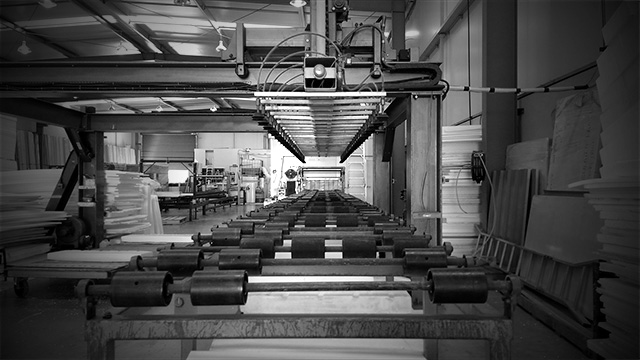
There have been a flood of opinion pieces and news stories in recent weeks wrongly telling people that it was not trade that led to the loss of manufacturing jobs in recent years, but rather automation. This means that all of those people who are worried about trade deficits costing jobs are simply being silly. The promulgators of the automation story want everyone to stop talking about trade and instead focus on education, technology or whatever other item they can throw out as a distraction.
This “automation rather than trade story” is the equivalent of global warming denialism for the well-educated. And its proponents deserve at least as much contempt as global warming deniers.
The basic story on automation, trade and jobs is fairly straightforward. “Automation” is also known as “productivity growth,” and it is not new. We have been seeing gains in productivity in manufacturing ever since we started manufacturing things.
Productivity gains mean that we can produce more output with the same amount of work. Before the trade deficit exploded in the last decade, increases in productivity were largely offset by increases in output, making it so the total jobs in manufacturing did not change much.
Imagine that productivity increased by 20 percent over the course of a decade, roughly its average rate of growth. If manufacturing output also increases by 20 percent, then we have the same number of jobs at the end of the decade as at the beginning. This is pretty much what happened before the trade deficit exploded.
This is easy to see in the data. In December of 1970 the US had 17.3 million manufacturing jobs. Thirty years later, in December of 2000, it had 17.2 million manufacturing jobs. We had enormous growth in manufacturing productivity over this period, yet we had very little change in total employment.
To be clear, manufacturing did decline as a share of total employment. Total employment nearly doubled from 1970 to 2000, which means that the share of manufacturing employment in total employment fell by almost half. People were increasingly spending their money on services rather than manufactured goods.
However what we saw in the years after 2000 was qualitatively different. The number of manufacturing jobs fell by 3.4 million, more than 20 percent, between December 2000 and December of 2007. Note that this is before the collapse of the housing bubbled caused the recession. Manufacturing employment dropped by an additional 2.3 million in the recession, although it has since regained roughly half of these jobs.
The extraordinary plunge in manufacturing jobs in the years 2000 to 2007 was due to the explosion of the trade deficit, which peaked at just under 6 percent of GDP ($1.2 trillion in today’s economy) in 2005 and 2006. This was first and foremost due to the growth of imports from China during these years, although we ran large trade deficits with other countries as well.
There really is very little ambiguity in this story. Does anyone believe that if we had balanced trade it wouldn’t mean more manufacturing jobs? Do they think we could produce another $1.2 trillion in manufacturing output without employing any workers?
It is incredible how acceptable it is for our elites to lie about trade rather than deal with the issue candidly. The most blatant example of this dishonesty is a December, 2007 Washington Post editorial that praised NAFTA and, incidentally, criticized the Democratic presidential candidate for calling for renegotiating the trade deal.
The editorial absurdly asserted:
“Mexico’s gross domestic product, now more than $875 billion, has more than quadrupled since 1987.”
For GDP to quadruple over the course of two decades, it would have to sustain a 7 percent average annual rate of growth. China has managed to do this and almost no one else, certainly not Mexico. According to the IMF, Mexico’s GDP grew by 83 percent over this period.
While it is striking that the Washington Post’s editorial board would have been so ill-informed as to make such a huge mistake in their original editorial, the really incredible part of the story is that they still have not corrected the online version almost a decade later. After all, a reader could stumble on the GDP quadrupling claim and think that it is actually true.
This level of dishonesty separates trade out from most other areas of public debate. There can be grounds for honest people to differ on many issues, but there is less of a basis for asserting Mexico’s GDP quadrupled during this period than there is for denying global warming. It is unfortunate that the proponents of recent trade deals feel they have to be this dishonest to push their agenda.
Trump is silencing political dissent. We appeal for your support.
Progressive nonprofits are the latest target caught in Trump’s crosshairs. With the aim of eliminating political opposition, Trump and his sycophants are working to curb government funding, constrain private foundations, and even cut tax-exempt status from organizations he dislikes.
We’re concerned, because Truthout is not immune to such bad-faith attacks.
We can only resist Trump’s attacks by cultivating a strong base of support. The right-wing mediasphere is funded comfortably by billionaire owners and venture capitalist philanthropists. At Truthout, we have you.
We’re in the midst of a fundraiser, and as of right now, we have until midnight to raise $10,000. Please take a meaningful action in the fight against authoritarianism: make a one-time or monthly donation to Truthout. If you have the means, please dig deep.